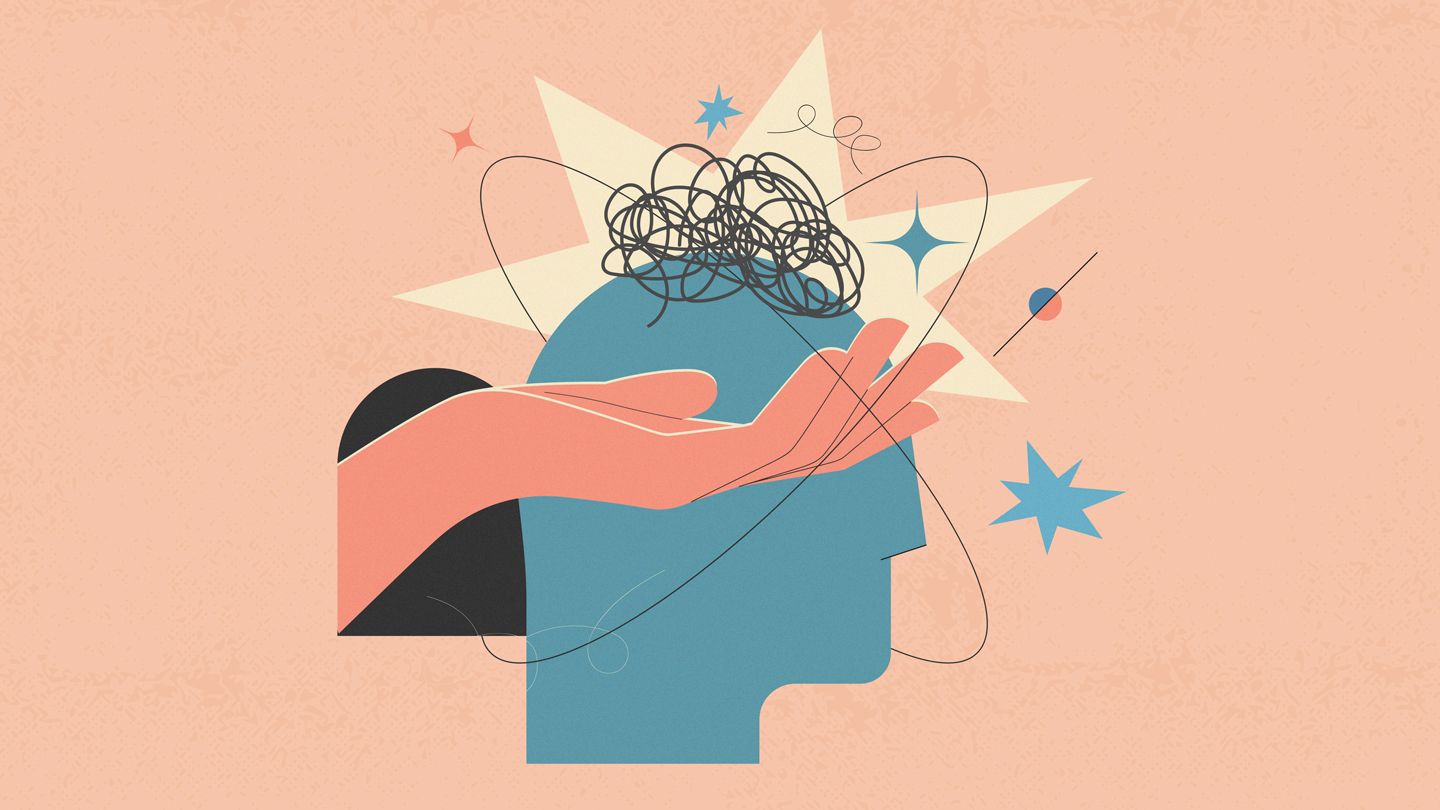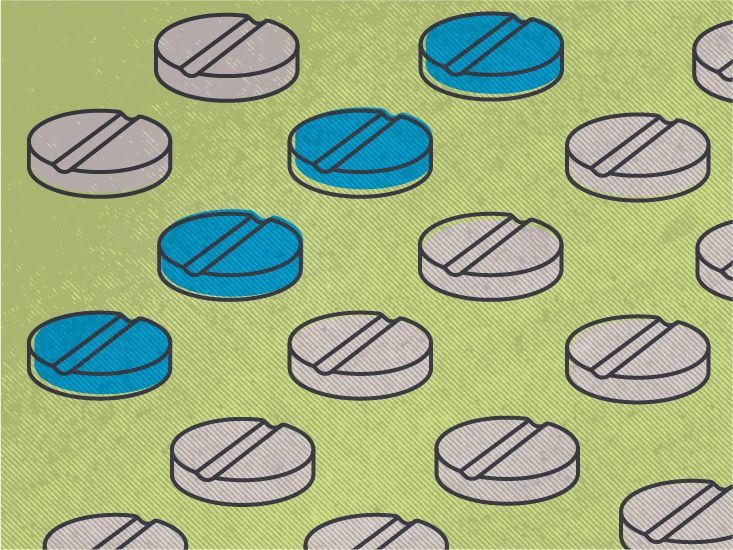Yeah. School is hard.
Like, really hard. And if you've ever watched a bright, sensitive kid come home drained not just tired, but crushed after eight hours in a classroom that's supposed to nurture them you know it's not just about homework or pop quizzes.
For neurodivergent students whether they're autistic, have ADHD, or both (hello, AuDHD) the daily school experience often feels less like learning and more like surviving. And now, science is finally saying what families have known for years: these kids aren't overreacting. They're carrying twice the emotional burden of their neurotypical peers.
That's not drama. That's data. And it's time we stopped asking these kids to try harder and started asking: What's the school doing or not doing to support them?
The Real Cost
Researchers from King's College London, UCL, and Anna Freud recently conducted a study with over 700 kids aged 11 to 16. They didn't just hand out surveys. They sat down with neurodivergent teens and asked, "What does school actually feel like for you?" Together, they built a tool called the "My Emotions in School Inventory" (MESI) a checklist that actually gets what these kids go through.
And what did they find? That neurodivergent students face daily emotional stressors that stack up like bricks in a backpack and most schools aren't even seeing the weight.
It's not just about being "sensitive" or "needing to toughen up." We're talking about an environment where a flickering fluorescent light, an unexpected schedule change, or being told to "stop fidgeting" can trigger real distress. And when that happens day after day, it's not just tiring. It's dangerous.
Because here's the heartbreaking truth: this kind of chronic stress doesn't just make school harder. It sets the stage for long-term mental health struggles including autistic depression and severe ADHD anxiety according to a study in PMC.
This isn't a weakness. It's a warning sign. A signal that the environment itself is hurting kids who learn and experience the world differently.
What's Actually Harming Kids
Let's get real: it's usually not one big thing. It's the small stuff the drip, drip, drip of daily stressors that nobody seems to notice until the kid finally breaks down.
Here are just a few things neurodivergent students tell us destroy their peace:
- When the lunch bell rings five minutes early again
- The teacher announcing a pop quiz with no warning
- Being scolded for "daydreaming" while trying to process what she just said
- The cafeteria that sounds like a rock concert on a bad day
- Being left out of group work or laughed at for speaking too literally
- Getting punished for losing a permission slip again
- Being told "no headphones" even when the hallway PA system blasts static
These aren't "kids being dramatic." These are real, measurable pain points. Emotional landmines scattered across an eight-hour minefield.
And let's remember: these same stressors are happening in the same classroom, every single day, to a kid who's already working twice as hard just to keep up.
It's Not One Size
Here's something important: neurodivergent isn't a one-label-fits-all category. It's beautiful, messy, and wildly diverse. And that means stress shows up differently depending on how a brain is wired.
Take a look at this it's not just clinical insight, but lived experience.
| Neurotype | Most Stressful School Experiences | Unique Needs |
|---|---|---|
| ADHD | Boring lessons, not being heard, being stopped from doing fun things, blamed for lost items | Need engagement, movement, flexibility, and clear communication |
| Autistic | Sensory overload, sudden changes, social confusion, unkind gossip | Need predictability, sensory supports, and social safety |
| AuDHD | Combination of both but with unique challenges no checklist predicts | Need flexible plans that honor need for structure AND spontaneity |
One parent told me, "My son shuts down when the bell changes unexpectedly. Not because he's stubborn because his brain can't handle the shock. Why can't they just stick to the schedule?"
Good question, right?
A kid with autism might panic at the sound of a fire drill. A child with ADHD might feel like they're "failing" because they can't sit still during silent reading. An AuDHD student? They might meltdown not because of one thing, but because every coping resource they had is now gone and nobody notices until it's too late.
Treating them all the same? That's like giving everyone the same medicine for different illnesses. It just doesn't work.
The Hidden Damage
Let's talk about what happens when this stress goes unaddressed.
It's not just bad grades or trouble focusing. The real cost shows up in mental health.
Studies show that 92.5% of students experiencing school distress also meet clinical thresholds for anxiety. And emotionally overwhelmed kids are far more likely to develop depression that lasts into adulthood according to Psychology Today.
They start believing lies like: "I'm broken." "I'm lazy." "No one will ever understand me."
And worst of all? They're told, "Everyone finds school hard. You just need to try."
Imagine walking with a sprained ankle and someone saying, "Just walk faster!" instead of offering a crutch. That's what most neurodivergent students feel unsupported, misunderstood, and isolated.
And that's how school trauma starts. Quietly. Slowly. But deeply.
School Refusal? Or School Distress?
Here's a phrase you've probably heard: "school refusal."
It sounds like defiance. Like a kid being stubborn. But for most neurodivergent children, it's the exact opposite.
They're not refusing. They're resisting pain.
Data shows that 94.3% of school attendance issues are tied to actual, intense emotional distress. And get this 83.4% of kids with chronic school avoidance are autistic according to Understood.org.
One mom said, "Every morning, my daughter cries. Not because she's lazy. Because walking into that school feels like walking into a storm."
A storm they can't control. A storm no one else even sees.
That's why so many advocates are pushing to stop using the term "school refusal" and start saying "school distress" instead. It's more accurate. More compassionate. And more honest.
These kids aren't failing school. School is failing them.
Why Support Is Falling Short
So why aren't schools doing better?
It's not always because they don't care. Often, it's because the system itself is broken.
A survey by the Hechinger Report and Understood.org found that:
- 82% of parents say their child is misunderstood by peers
- 76% say teachers don't understand their child's needs
- Many accommodations come far too late or not at all
Why?
Because getting an evaluation can take over a year. Private assessments cost thousands. Teachers aren't trained in neurodiversity basics. And too many schools still operate on a "one rule fits all" model like banning fidget tools or headphones, even when they're lifelines.
It's like saying, "We don't allow crutches everyone walks the same way."
And the saddest part? This struggle often starts before age 8. Years before a formal diagnosis. Years before real help kicks in.
Kids are told to "wait." But waiting costs them their joy, their confidence, and sometimes, their safety.
Real Change Is Possible
Okay. This sounds grim. I know.
But here's the good news: we can fix this. Not by trying to "fix" neurodivergent kids but by fixing the environment.
As Dr. Linda Przybylo once said: "Stop blaming the canary in the coal mine. The air is toxic."
Let that sink in.
These kids aren't the problem. The mismatch between their needs and the school environment is.
So what can actually help?
What Schools Can Do
For all neurodivergent students:
- Train teachers in neurodiversity basics not just "ADHD" or "autism," but real understanding
- Make tools like headphones or fidget toys available to everyone no shame, no gatekeeping
- Act fast on bullying and unfair treatment
- Let students help design their own coping plans because they know themselves best
- Use visual schedules and give warnings before changes ("We're switching classes in 5 minutes")
For ADHD students:
- Break assignments into smaller steps so they don't feel overwhelmed
- Let them move, talk out loud, or doodle to stay focused
- Replace "You're not trying" with "Let's find a better way"
- Give feedback quickly and positively not just criticism
For autistic students:
- Dim the lights, reduce loud announcements, and create quiet spaces
- Give time between transitions no rushing from class to class
- Teach social skills without making them feel "wrong" for being different
- Be proactive about peer cruelty don't wait until harm is done
For AuDHD students:
- Don't just mix ADHD and autism strategies that doesn't work
- Create plans that are flexible and can adapt as needs shift
- Honor both their need for routine and their sudden bursts of energy or creativity
As child psychologist Dr. Emily W. King puts it: "It's not about changing the child. It's about changing us the adults designing the environment."
What You Can Do
If you're a parent, caregiver, or educator here's where you come in.
Start small. But start.
- Praise self-advocacy: "I need a break" is a brave sentence.
- Document patterns when meltdowns happen, what's going on?
- At home, create emotional safety: "It's not you. It's the system." Say it often.
- Build your village: find one teacher, one therapist, one other parent who gets it.
- Push for accommodations IEPs, 504 plans, or even alternative programs if needed.
One mom shared: "We moved to a hybrid school. My kid finally smiled on Mondays. That's all I wanted."
Imagine that. A child who used to dread school actually looking forward to it. That's not a miracle. That's what happens when we listen.
The Bigger Vision
This isn't just about making school "easier" for neurodivergent kids.
It's about dignity.
True inclusion isn't just about having a seat in class. It's about being seen, respected, and valued for who you are.
So let's stop glorifying "grit" when the environment is the problem. Let's celebrate neurodivergent joy the curiosity, the honesty, the creativity, the deep passion for niche interests.
And let's support neurodivergent educators, therapists, and leaders because they're not just fixing the system. They're reimagining it.
Every neurodivergent student carries brilliance. But they can't shine if they're spending all their energy just trying to survive.
You're Not Alone
Neurodivergent school stress isn't weakness. It's a signal a loud, urgent message that the system isn't working.
But it doesn't have to be this way.
With better training, smarter environments, and more empathy, we can reduce the emotional burden. Not by asking kids to try harder but by asking adults to understand more.
Because every child deserves to learn without pain. Without shame. Without pretending to be someone they're not.
If you're a parent: your voice matters. If you're a teacher: your mindset can change a life. If you're a student: your feelings are valid. You are not broken.
Let's keep talking. Advocating. Adapting.
Better schools aren't just possible they're necessary.
And they start with us.
FAQs
What causes neurodivergent school stress?
Neurodivergent school stress stems from sensory overload, unpredictable schedules, social challenges, academic pressure, and lack of accommodations in environments not designed for diverse brains.
How does school stress affect neurodivergent students?
Chronic stress can lead to anxiety, depression, burnout, school avoidance, and long-term mental health issues due to constant effort to cope in an unsupportive environment.
What’s the difference between school refusal and school distress?
School refusal implies willful defiance, while school distress recognizes that the child is reacting to overwhelming emotional pain caused by an incompatible school environment.
Why do neurodivergent students carry more emotional weight?
They often mask their needs, navigate sensory and social challenges daily, and work harder to meet neurotypical expectations without adequate support or recognition.
How can schools better support neurodivergent students?
Schools can offer sensory accommodations, train staff in neurodiversity, provide flexible learning plans, prevent bullying, and involve students in creating supportive strategies.
What role do teachers play in reducing neurodivergent school stress?
Teachers can reduce stress by being informed, adaptable, and compassionate—using tools like visual schedules, movement breaks, and clear communication tailored to individual needs.
Are ADHD and autism-related school stress the same?
No—ADHD-related stress often comes from boredom, lack of movement, and feeling blamed, while autistic students may struggle with sensory issues, transitions, and social confusion.
What can parents do to help a child with neurodivergent school stress?
Parents can document stress patterns, advocate for accommodations, create safe spaces at home, validate feelings, and build alliances with understanding educators.
Disclaimer: This article is for informational purposes only and does not constitute medical advice. Always consult with a healthcare professional before starting any new treatment regimen.
Related Coverage
The Vyvanse shortage is expected to continue through 2023 due to manufacturing delays and increased demand. Learn what's causing it and get coping tips for patients and doctors....
The methylphenidate shortage continues into 2023, disrupting treatment for many ADHD patients. Learn what's causing the shortage, how patients are coping, and possible solutions....
Research shows PMDD and ADHD commonly co-occur in women due to overlapping symptoms, brain changes, genetics, and hormone fluctuations that worsen both conditions....
Jornay PM side effects can be mild but knowing how to manage appetite loss, sleep changes, and mood shifts helps you stay on track....
Adderall shortages can disrupt treatment for those with ADHD. Learn causes of shortages, impacts, coping strategies, alternative medications, and self-care....
Adderall shortages can make filling your prescription difficult. Learn techniques to check pharmacy inventory and locate Adderall when supplies are low....
Yes, primary care doctors can diagnose ADHD and prescribe medications like Adderall. Learn about discussing symptoms, treatment goals, getting a prescription....
ADHD involves challenges with focus, impulsivity, and managing behavior. Healthy lifestyle habits, treatment plans, and good sleep hygiene can provide relief....
Learn how Quillivant XR interactions with drugs, alcohol, and supplements can affect your health. Stay safe and informed....
Learn how long methylphenidate remains detectable in blood, urine, saliva, and hair. Factors like dose, metabolism, age affect detection windows....









